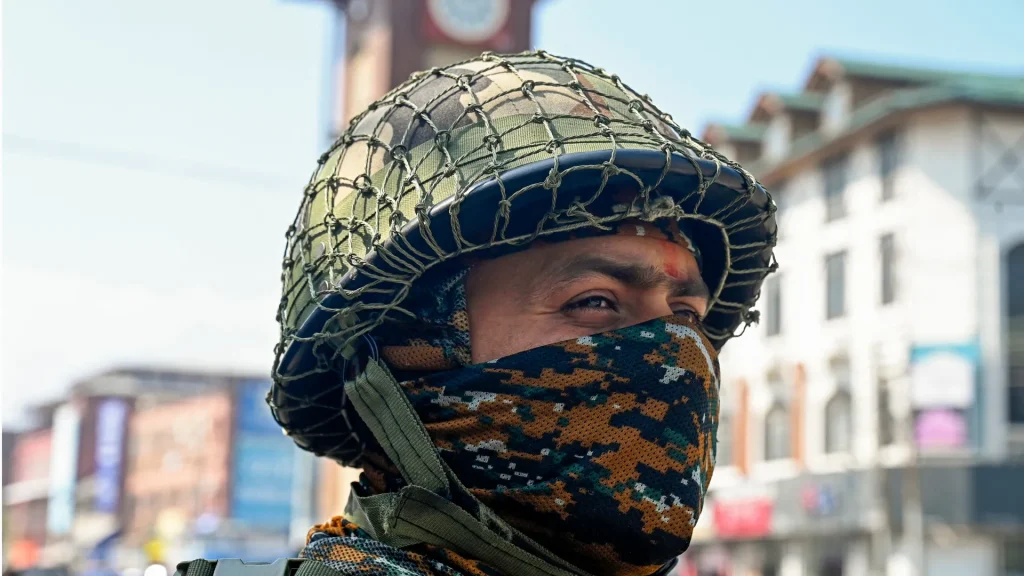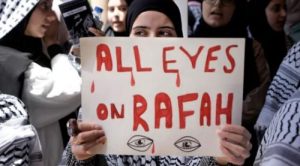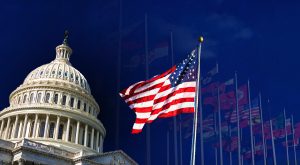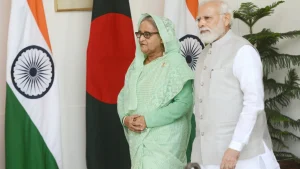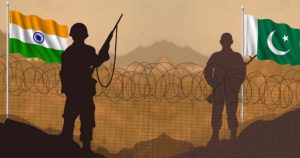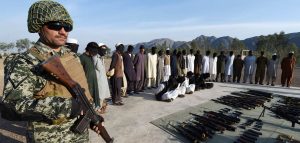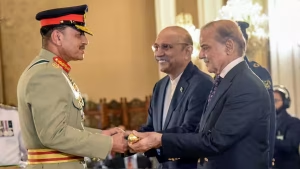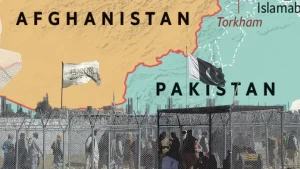Comedic optimism seems to be attenuating in the face of the grave situation in Indian Illegally Occupied Jammu and Kashmir (IIOJK), as India continues to consolidate its occupation of the territory through every possible tool of oppression and suppression. Six years after the revocation of Article 370, which stripped Kashmir of its special status, the India government’s project appears no longer limited to territorial control but directed towards erasing Kashmir’s Muslim identity. Through constitutional manipulation, demographic change, cultural engineering, and intellectual erasure, the Muslim character of Kashmir is being systematically targeted.
It cannot be denied that the Government of India has long attempted to alter the socio-political, religious, and cultural identity of Kashmir: a process that dates back to 1947. However, these efforts have intensified significantly under the Bharatiya Janata Party (BJP) government, especially after the revocation of Article 370. On August 5, 2019, the Indian government under Prime Minister Narendra Modi revoked the special autonomous status of IIOJK. This move bypassed international law and United Nations (UN) resolutions, using the pretext of ‘development’ to justify integration. Since then, the BJP government has relentlessly pursued policies aimed at reshaping the region’s Muslim identity through demographic and cultural engineering. By employing a range of tactics, New Delhi seeks to reshape Kashmir’s religious, socio-political, and cultural fabric, thereby tightening its control and forcing assimilation into the Indian state.
Last month, the Indian government banned twenty-five books written by Kashmiri and international scholars, including A.G. Noorani, M. Yusuf Saraf, Christopher Snedden, and Victoria Schofield. These works, which document the constitutional, political, and cultural history of the state and expose India’s genocidal acts in the region, were declared forfeit under India’s new criminal code. Authorities claimed they promoted false narratives and secessionism. In reality, the bans represent a calculated attempt to sever Kashmir’s younger generations from their past. In a society where oral tradition and written memory are inseparable, this censorship constitutes an assault on continuity itself.
The state’s antagonism toward Islamic learning is further demonstrated by the widespread seizure of books by the prominent Islamic thinker Abul A’la Maududi. In a series of raids, police seized copies of his work from Srinagar booksellers, citing vague ‘security concerns’. This is not merely suppression; it is intellectual erasure.
As aforementioned, the attempt to alter the demographic makeup began as early as November 6, 1947, with the Jammu genocide, during which approximately 61% of the Muslim population in the Jammu region was reduced to 33%. Since then, successive Indian governments have made continuous efforts to erode the Muslim identity in the region.
A recent move to expand liquor shops across Srinagar and other parts of the valley has triggered widespread anger. Drug usage has also risen, particularly among young people, with suspicions that narcotics are being deliberated distributed to undermine Islamic values. Religious leaders, traders, and civil society groups have denounced these measures as a direct attack on Islamic values and Kashmiri traditions. Mirwaiz Umar Farooq, a prominent cleric and Hurriyat leader, described the policy as an ‘assault’ on religious and societal ethos of the Kashmiris. Local markets in Batmaloo and other neighborhoods observed shutdowns in protest. For a society where sobriety is tied to religious and cultural practice, the state’s push for liquor sales is widely seen as an intentional attempt to corrode moral foundations under the guise of normalcy.
Equally disturbing was a recent incident in which Hindu tourists were seen dancing outside the Hazratbal Dargah in Srinagar, a site where photography itself is not permitted. Adding to this, a vulgar fashion show was organized in Gulmarg during the holy month of Ramadan, with models dressed in ways that deeply offended local religious sensibilities. Religious liberty is being steadily curtailed: the historic Jamia Masjid in Srinagar is often kept closed, and religious leaders continue to be placed under house arrest on Fridays. On the occasion of Shab-e Qadr, the Jamia Masjid was locked to prevent congregational prayers.
The recently passed Waqf (Amendment) Bill grants the Indian government sweeping powers over mosques, shrines, and Islamic schools. Institutions that for centuries preserved Islamic practice in the valley are now left vulnerable to direct state intervention. The emblem controversy at the Hazratbal shrine further inflamed tensions. After renovation works, worshippers discovered an Indian national emblem plaque inside the mosque premises, which they found offensive, sparking protests. Instead of addressing concerns, Waqf Board Chairperson Dr. Darakhshan Andrabi, a BJP politician, labelled the protesters ‘terrorists’ and demanded their arrest under strict laws. She also threatened to file cases against a member of legislative assembly (MLA) who supported the demonstrations. Her remarks were seen as deliberately inflammatory, particularly as she called for action under the Public Safety Act (PSA), infamous for arbitrary detentions. According to reports, between 25 to 50 individuals were detained by police following the alleged ‘vandalisation’ of the national emblem.
Political dissent is treated as a crime, with many political leaders detained or placed under house arrest. Several religious and political organizations have been explicitly banned. Prominent human rights activists and journalists remain imprisoned under draconian laws such as the PSA, and the Unlawful Activities (Prevention) Act (UAPA). The message is clear: any expression of Kashmiri Muslim identity that challenges the BJP’s Hindu nationalist narrative must be suppressed.
Discrimination extends into the socioeconomic domain as well. Reservation rules for government jobs disproportionately favour Hindu-majority areas, like Jammu over the Muslim-majority Kashmir Valley. Land regulations have been altered to allow outsiders to purchase property, intensifying demographic shifts. Agricultural lands – the backbone of Kashmir’s saffron and apple economy – are vanishing under a wave of construction as the BJP’s so-called ‘development’ initiatives erode centuries of heritage.
Road and railway projects now cut through apple and saffron orchards, while new townships are also being introduced, raising the critical question: Why these townships, and for whom? These initiatives appear to reflect a deliberate policy of land grabbing.
The most ecologically friendly region of South Asia is now facing unprecedented climate impacts. In the last five years alone, approximately 600,000 trees have been cut down along the Jhelum River, raising alarm over deforestation’s role in exacerbating the climate change. The loss of green cover reduces carbon absorption and risks triggering unpredictable environmental consequences.
At the same time, the Indian government has deepened social divisions by bypassing legislative measures, intensifying conflicts between Muslim tribal communities, such as the Gujjars-Bakerwals and Paharis. Ordinary people are also protesting against unprecedented load shedding and an 80-120% hike in electricity bills imposed by the Modi government, measures that disproportionately affect the poor Kashmiris.
Even the regions with significant non-Muslim populations are expressing discontent. Parts of Jammu and Kashmir are complaining about the influx of outsiders, which has disrupted local businesses and provoked calls for the reinstatement of Article 370. In Ladakh, people are demanding statehood, the Sixth Schedule protections, and a Public Service Commission (PSC) to address unemployment. Kargil leaders have gone on strike in solidarity, admitting that initial support for the revocation of Article 370 was a mistake that disempowered them: stripping away political rights, jobs, and now even land security.
The overall consequences of these policies are alarming. Such measures risk fuelling both indigenous resistance and religious extremism, as persecution breeds despair. Erasing a people’s history, culture, religion, or voice can drive them toward violence in pursuit of justice. The evidence suggests that the BJP-led administration is attempting to remake Kashmir in its own image, entrenching Indian occupation culturally, demographically, and religiously.
To ensure a peaceful future, this project of erasure must be resisted and Kashmiris must be granted their right to self-determination. This is not solely the responsibility of Kashmiris, but of all those who believe in universal principles of dignity, religious freedom, and the right of peoples to self-determination.




